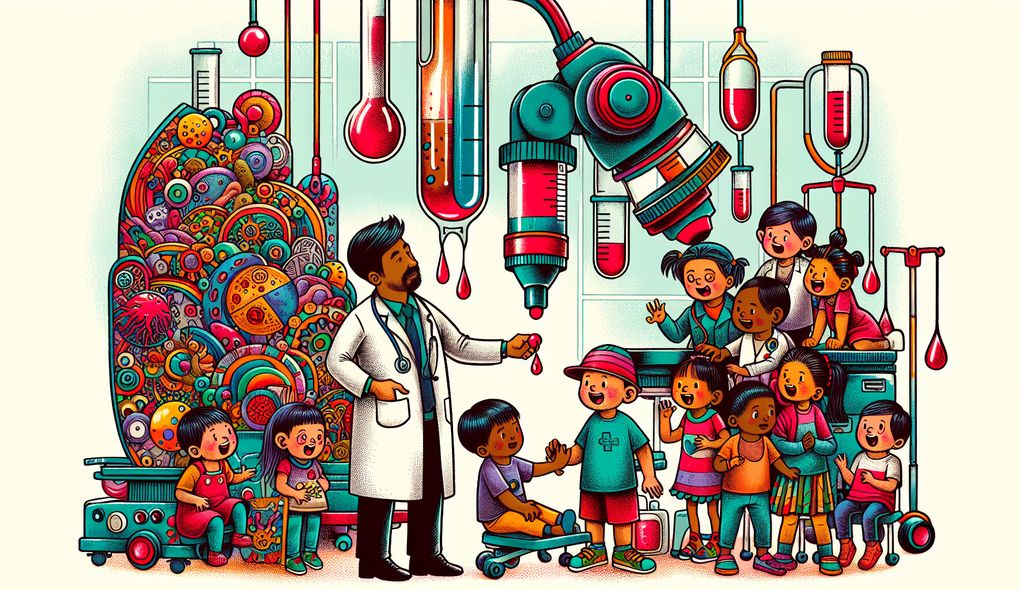Can you give an example of how you have educated patients and their families about medical conditions and treatment plans?
JUNIOR LEVEL

Sample answer to the question:
Yes, I can give you an example of how I have educated patients and their families about medical conditions and treatment plans. In my previous position as a Pediatric Hematologist/Oncologist, I often encountered cases where I had to explain complex medical information to non-medical audiences. For instance, I once had a young patient diagnosed with leukemia. I took the time to sit down with their family and explain the diagnosis, the treatment options available, and the potential side effects of each treatment. I used simple language and visual aids to ensure that they understood the information. I also provided them with written materials and resources to refer to after the conversation. Throughout the treatment process, I made sure to regularly check in with the family to address any questions or concerns they had. By doing so, I established a strong rapport with the family and empowered them to actively participate in the decision-making process.
Here is a more solid answer:
Certainly! Let me share with you an example of how I have effectively educated patients and their families about medical conditions and treatment plans. During my experience as a Pediatric Hematologist/Oncologist, I had the opportunity to work with a teenage patient diagnosed with a rare blood disorder. Recognizing the importance of clear communication, I scheduled a meeting with the patient and their family to discuss the condition and available treatment options. I used visual aids, such as diagrams and illustrations, to explain the underlying pathology and the potential impact on the patient's health. I also provided them with written materials and online resources to further enhance their understanding and facilitate their own research. Throughout the treatment journey, I maintained open lines of communication, ensuring that the family felt comfortable asking questions and voicing concerns. By providing personalized education and support, I empowered the family to actively participate in the decision-making process and confidently manage the patient's condition.
Why is this a more solid answer?
The solid answer provides a more comprehensive example of how the candidate has educated patients and their families about medical conditions and treatment plans. It demonstrates the candidate's effective communication skills, ability to explain complex medical information, engagement with patients and their families, and provision of education and resources. The answer aligns with the job description by highlighting the candidate's ability to provide specialized care, patient-centered approach, and strong communication skills.
An example of a exceptional answer:
Absolutely! Let me share a compelling example of how I have gone above and beyond in educating patients and their families about medical conditions and treatment plans. In my role as a Pediatric Hematologist/Oncologist, I encountered a challenging case involving a young child diagnosed with a rare form of pediatric cancer. Recognizing the emotional and informational needs of the family, I implemented a comprehensive educational program to support them throughout the treatment journey. I organized regular group sessions where families could come together and learn from each other's experiences. These sessions covered various topics, including the medical aspects of the condition, coping strategies, and available support services. Additionally, I collaborated with a team of child life specialists to develop interactive educational materials tailored to the child's age and understanding. These materials included storybooks, interactive apps, and videos that explained the treatment process in a child-friendly manner. To further empower the family, I facilitated connections with local support groups and online communities where they could seek guidance and share their experiences. By taking a holistic approach to education and support, I ensured that the family not only received accurate medical information but also felt empowered, supported, and part of a larger community.
Why is this an exceptional answer?
The exceptional answer goes above and beyond in demonstrating the candidate's expertise in educating patients and their families about medical conditions and treatment plans. It showcases the candidate's ability to implement innovative educational programs, collaborate with a multidisciplinary team, tailor education to different audiences, foster a sense of community, and provide holistic support. The answer highlights the candidate's dedication to patient-centered care, ongoing education, and compassion for pediatric patients and their families.
How to prepare for this question:
- Review your past experiences where you have educated patients and their families about medical conditions and treatment plans. Identify specific examples that showcase your communication skills, ability to simplify complex information, and support provided.
- Familiarize yourself with common medical conditions, treatment plans, and potential side effects. Be prepared to explain these concepts in simple and relatable terms to non-medical audiences.
- Consider the use of visual aids, such as diagrams, illustrations, and interactive educational materials, to enhance your explanations and facilitate understanding.
- Highlight your ability to listen actively, address concerns and questions, and maintain open lines of communication with patients and their families.
- Emphasize the importance of empowering patients and families to actively participate in the decision-making process and engage with available resources and support.
- Demonstrate your commitment to ongoing education and professional development in the field of pediatric hematology/oncology to showcase your dedication to staying up-to-date with the latest developments and evidence-based practices.
What are interviewers evaluating with this question?
- Verbal and written communication skills
- Ability to explain complex medical information to non-medical audiences
- Engaging with patients and their families
- Providing education about medical conditions and treatment plans

